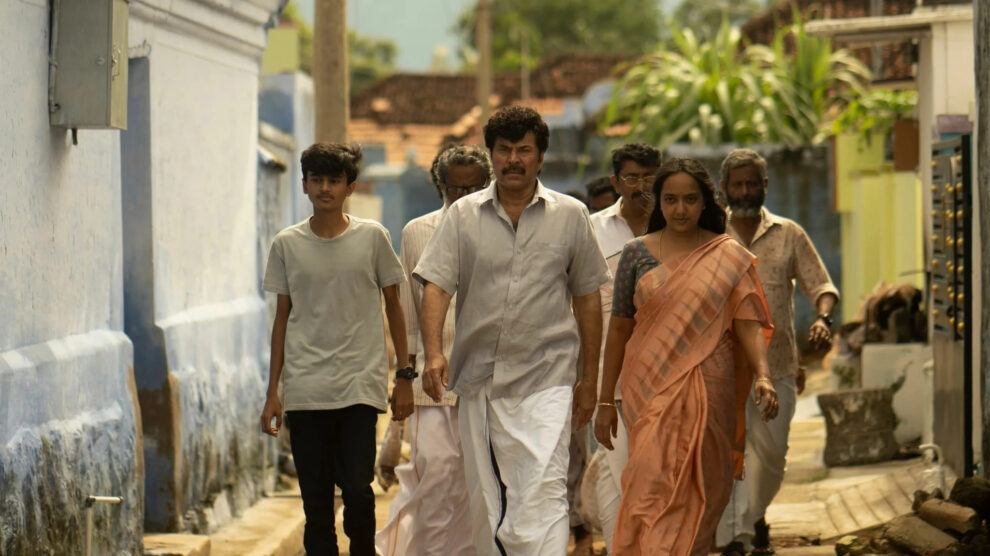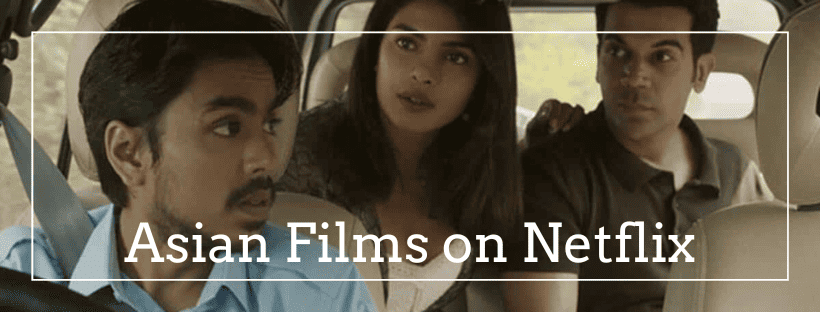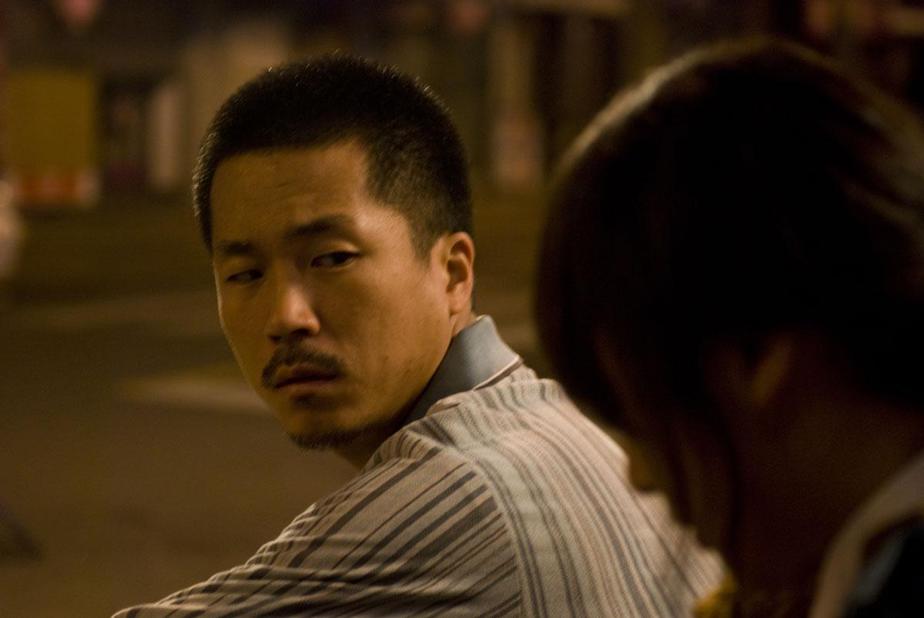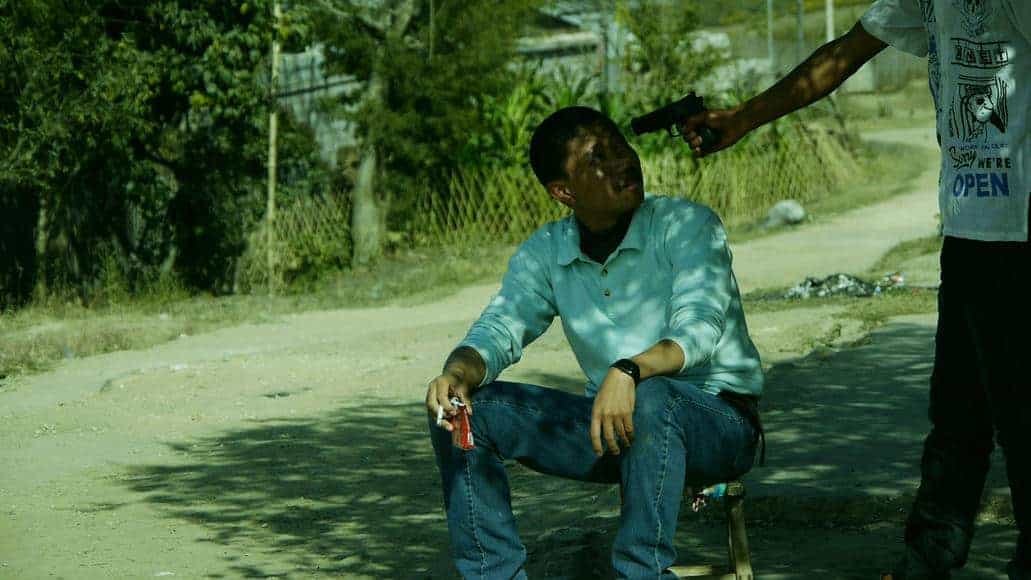Starting with “Labyrinth”, Lijo Pellissery begun to move away from the ultra-fast, ultra-tense, ultra-violent style he had established with film like “Angamaly Diaries” and “Jallikattu”, slowing down and becoming slightly more arty. This change is cemented in “Like An Afternoon Dream” which implements a rather oneiric approach throughout, although the tension is not exactly missing from here either.
After visiting Velankanni, Tamil Nadu, a group of Malayali tourists are returning to Kerala. Their tour leader, James, who is on the bus along with his wife, Sally, is a hard-core Malayalam who seems to be bothered by everything Tamil; the food, the music, the language. As the majority of the members of the group are tired, eventually fall asleep, including James, who, at some point though, wakes up and asks the driver to stop in a remote small village. He gets out of the bus and goes straight to a house there, immediately starting to act as if he were Sundaram, a member of the family who had disappeared two years earlier, including talking in Tamil and acting as if he knows everyone in the area. The members of the family are perplexed, except for the elderly, blind ‘grandmother' who actually recognizes him as Sundaram. The villagers are even more perplexed, while the rest of the members of his group eventually start searching for him.
It is very difficult to discern what “Like An Afternoon Dream” is about. One can say, considering the way the Tamils and the Malayalams talk and perceive about each other, that it is about racism, and how people are not as different as they actually think, barring the language though. Through that prism, Michael's transformation to Sundaram could be perceived as an allegory highlighting this exact comment, although the differences of the two groups are not as intense to actually justify a whole movie making a comment against racism.
Check also this video
At the same time, though, the main concept allows Pellissery to include a number of very intriguing aspects in his film, along with an unusual, but quite interesting comment. The first one is to induce the narrative with a sense of agony about what is going to happen in the end, as much as drama, particularly since James's wife sees her husband transformed into something completely different, right in front of her eyes. Secondly, it allows Mammootty to show his range once more, with him playing two completely different individuals with the same artistry, in another bigger-than-life performance (not in masala terms though) that also highlights his evident charisma.
The comment concerns human nature, and how people react to absurd events such as the one everyone around the protagonist experience. That the majority of locals soon start acting as this newcomer is someone who has always been their acquaintance, despite their perplexion about what is happening, could be perceived as a comment about how life works in such small societies or even a message against violence, as the reaction of the locals for having a stranger barging in their house could easily turn into something dire. Furthermore, that the one who first accepts the newcomer as a member of the family is the blind grandmother could be perceived as a comment on how appearances and the obsession people have with them, can actually be a problem in accepting people who are different. Again, however, none of these remarks are clear enough, in an approach that is not obvious if it is on purpose.
Apart from Mammootty's performance, the movie thrives, once more in a Pellissery film, in its visuals. Theni Eswar's cinematography and particularly his framing are a true wonder to watch, with the way he uses parts of every setting (windows, beams, doors etc) in order to set his frames being a feat unto itself. The coloring is also impressive throughout, while the night shots, and particularly the one at the bar, are among the most memorable in the whole film. Deepu Joseph's editing results in a relatively fast pace, much slower than the director's previous works though, which also works well regarding the perplexion Pellissery wanted both his characters and his viewers to experience.
“Like An Afternoon Dream” is definitely addressed to art-house audiences, while the truth is, that it is on a lower level than “Jallikattu” which is Pellissery's masterpiece. However, it is also well-shot, well-acted and quite easy to watch, even if its comments are more vague (to the Western viewer at least) than they could be.
















